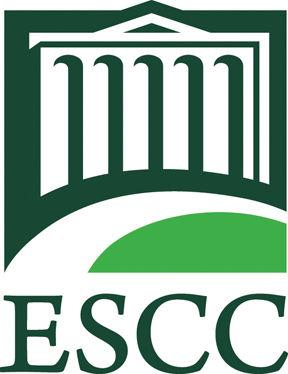ASPIRE 2030 helping ESCC plan for future
Enterprise State Community College is planning for the future with its ASPIRE 2030 plan.
ASPIRE (Achieving Systemwide Potential through Increased Resources and Engagement) 2030 was established by ACCS Chancellor Jimmy Baker to inspire deeper community engagement during the strategic planning process for capital improvement projects at Alabama community colleges. The new initiative was announced after Alabama lawmakers approved a $1.2 billion public school bond issue for capital improvement projects. ACCS allotted $120 million to be divided among the state’s community colleges.
As part of the development of the College’s plan that was officially submitted on Dec. 9, ESCC performed a self-analysis to identify potential capital improvement projects that would best affect the community. ESCC’s plan delved into the areas of focus of the College – people, programs, facilities and community – and explored how community development goes hand in hand with economic and workforce development, leading to the development of possible projects that could increase ESCC’s influence in its local communities.
The self-analysis analysis was completed by not only internal stakeholders to the College but also stakeholders through the College’s External Committee. ESCC committees met for the first time virtually to discuss ASPIRE 2030 and the College on July 23.
“We spent countless hours meeting with representatives from the communities we serve over these past few months,” ESCC President Matt Rodgers said. “Together, we delved deep into the impact our College already has on the community and how we can provide more of an impact in certain areas.”
The External Committee included representatives of local and state government, local K-12 education systems, higher education, business and industry, the local non-profit sector and economic development who provided feedback on potential needs, such as workforce needs, in sectors locally and statewide.
One such representative, Vice Chairman of Friends of Fort Rucker Floyd E. Rodgers, called the development of the College’s ASPIRE plan a “collaborative effort.”
“Enterprise State Community College is a valuable part of our community, providing essential educational opportunities to a diverse population,” he said. “The ASPIRE process was an effective collaborative effort that helped stakeholders identify how ESCC can further develop and expand opportunities for our community, which includes the Army Aviation Center of Excellence and Fort Rucker.
“ESCC provides necessary educational opportunities for the Soldiers and family members stationed at Fort Rucker. In addition, the plan further benefits the Alabama Aviation College as it supports the aviation training mission at Fort Rucker by providing educated/trained personnel in support of the contractor managed aircraft maintenance requirement.”
Rodgers said the development of ESCC’s ASPIRE 2030 plan opened a new door for impactful conversations between ESCC and local communities.
“I am proud of this plan, and I am proud of the work of our faculty, staff and everyone else involved in its creation,” Rodgers said. “I’m especially thankful for the work of Andrew Davis and Debbie McCollough, who put together our complete ASPIRE 2030 plan for submission.
“This plan forced us to reach out to so many different people. I believe that everyone who participated learned something. I am excited to see what this process has already done for our College, and I cannot wait to see where the projects we’ve come up with in our plan will take us in the future.”
ESCC’s Director of Institutional Effectiveness and Planning Andrew Davis called this project “the most exciting” he had ever been involved in at ESCC.
“ASPIRE 2030 is the most exciting project I’ve been involved in within my time at ESCC, and I know it will have a great impact on the College,” he said. “Over the past few months, we’ve had the opportunity to step back, analyze how to do things and research innovative ways to grow over the next decade. More importantly, we’ve been able to connect with the members of our community and find new ways to serve. I look forward to Phase II of the ASPIRE 2030 project and the improvements it will bring.”

